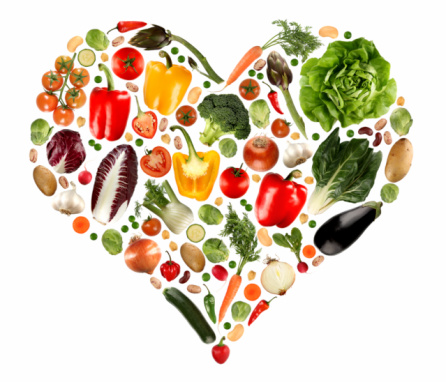Health Benefits of Fruits and Vegetables
Share
You know vegetables are good for you, but why is this true? Those who eat vegetables as part of their daily diet, can have a reduced risk of developing many chronic diseases. Nutritionists agree that making half of your plate up with vegetables, is a wise health choice.
Vegetables play an important role in healthy eating and provide a wide variety of nutrients. These include fibre, folate, antioxidants, vitamins A, E and C, and potassium. Vegetables like broccoli, spinach, tomato, garlic and onion provide additional benefits, hailing them as a superfood.
Health benefits of vegetables include:
- The potassium found in many vegetables such as green leafy vegetables may help to maintain healthy blood pressure levels;
- The fibre found in vegetables, especially when the skin is left on, helps maintain a healthy gut and digestive system. Fibre also helps to reduce blood cholesterol levels and may lower the risk of developing heart disease;
- Folate or folic acid helps to form healthy red blood cells in the body. Pregnant women or those planning on conceiving need adequate folate in order to reduce the risk of neural tube defects and spina bifida during foetal development.
What the studies suggest:
- An increased vegetable consumption may reduce your risk of high blood pressure; [1]
- Consuming an increased amount of vegetables protects against cancer of the stomach and pancreas as well as colorectal, prostate,[2] and bladder cancers. Lung cancer risk may be lowered for smokers who eat their vegetables;[3]
- Eating more vegetables including the fibre, can help you to lose weight;[4]
- The risk for developing Alzheimer’s[5] as well as diabetes,[6] may be lowered with higher vegetable consumption;
- Consumption of vegetables, especially leafy green vegetables and those with vitamin C, appears to be have a protective effect against coronary heart disease.p[7],[8] Vitamin C is present in vegetables such as tomatoes, capsicum, broccoli as well as green leafy vegetables.
References
1. Alonso A, de la Fuente C, Martín-Arnau AM, et al. Fruit and vegetable consumption is inversely associated with blood pressure in a Mediterranean population with a high vegetable-fat intake: the Seguimiento Universidad de Navarra (SUN) Study. Br J Nutr. 2004 Aug;92(2):311-9.2. Freedland SJ, Aronson WJ. Dietary intervention strategies to modulate prostate cancer risk and prognosis. Curr Opin Urol. 2009 May;19(3):263-7.
3. Block G, Patterson B, Subar A. Fruit, vegetables, and cancer prevention: a review of the epidemiological evidence. Nutr Cancer. 1992;18(1):1-29.
4. Liu S, Willett WC, Manson JE, et al. Relation between changes in intakes of dietary fiber and grain products and changes in weight and development of obesity among middle-aged women. Am J Clin Nutr. 2003 Nov;78(5):920-7.
5. Giem P, Beeson WL, Fraser GE. The incidence of dementia and intake of animal products: preliminary findings from the Adventist Health Study. Neuroepidemiology. 1993;12(1):28-36.
6. Barnard ND, Cohen J, Jenkins DJ, et al. A low-fat vegan diet and a conventional diabetes diet in the treatment of type 2 diabetes: a randomized, controlled, 74-wk clinical trial. Am J Clin Nutr. 2009 May;89(5):1588S-1596S. Epub 2009 Apr 1.
7. Block G, Patterson B, Subar A. Fruit, vegetables, and cancer prevention: a review of the epidemiological evidence. Nutr Cancer. 1992;18(1):1-29.
8. Joshipura KJ, Hu FB, Manson JE, et al. The effect of fruit and vegetable intake on risk for coronary heart disease. Ann Intern Med. 2001 Jun 19;134(12):1106-14.
 Printer Friendly Version
Printer Friendly Version
 References
References
Related Modalities
 Children’s Health
Children’s Health Dietitian
Dietitian Men's Health
Men's Health Nutrition
Nutrition Women's Health
Women's Health
